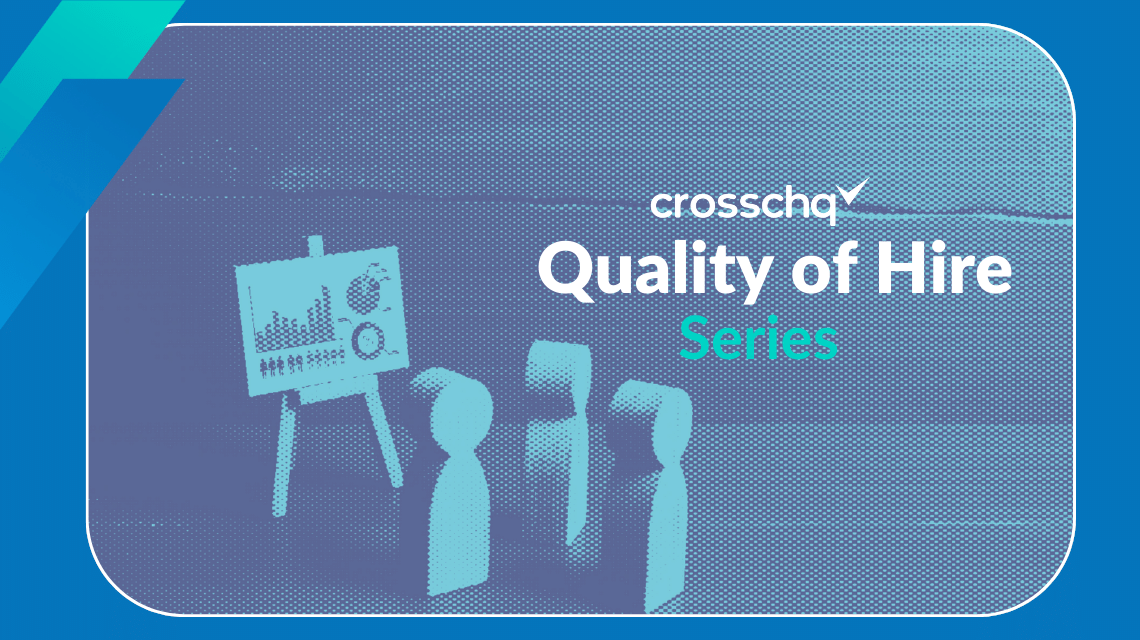

Crosschq Blog
Reference Check Questions for Operations Roles

A 2022 study from StandOutCV found that a majority of applicants will lie about at least one aspect of their work experience and background. Some of the most common things candidates lie about include:
- Previous work experience: 55%
- Skills: 43%
- Education: 41%
- Personal background: 39%
- High school information: 39%
- Salary details: 33%
- Software and equipment skills: 33%
- Employer references: 21%
Luckily, organization leaders, hiring leaders, and recruiters have a number of tools to help verify and assess applicants, like reference checks. Below we’ll look at how you can leverage reference checks to vet and identify the best operational management candidates.
The Importance of Reference Check Questions for Operations Positions
For especially important roles, like operations manager, hiring the wrong candidate can lead to significant short and long-term consequences. Operations managers are responsible for maintaining the most efficient and effective strategies across your organizations. From budgeting and forecasting to improving your hiring practices and monitoring productivity KPIs, these individuals help you identify your long-term goals and improve your day-to-day operations.
With such important roles, you need the right operations manager to ensure your organization is running smoothly and efficiently. Reference checks can help you bridge that gap by verifying their experiences, resume information, references, soft skills, and much more. And with automated reference check technology, that process becomes a lot easier and faster to complete.
Reference Check Questions for Business Operations Positions
When did _____ work for your organization and for how long?
This is a good opener that will verify some immediate information about the candidate’s experience in the company.
What were _____’s major roles and responsibilities in the company? How well did they execute their duties?
This is another good question that helps you gauge the kind of worth ethic and impact a candidate had on their organization.
What was _____’s attitude like in the workplace? Were they enjoyable to work with?
This question will give you a clear picture of the candidate’s soft skills and role as a team member.
Can you provide an example of when _____ improved a company practice, policy, or procedure to make your organization more efficient or effective?
Examples and concrete anecdotes are far more effective at demonstrating the impact a candidate had on their company than simply listing someone’s skills.
Was _____ a clear and transparent communicator? Why or why not?
Operations leaders will need to conceptualize, refine, and present bird’s-eye strategic decisions. This is a good question that will help you assess how effective of a communicator your candidate is.
Why did _____ leave your company?
There shouldn’t be any ambiguity about this point. One of the surest ways to identify a reliable (or unreliable) candidate is to verify why they left their job.
Would you rehire _____? Why or why not?
This is one of the most important questions you could ask anyone for a reference check, regardless of what position you need to fill. It’s a polarizing question that asks the former employer/manager to identify any red (or green) flags.
Should You Conduct Reference Checks at the Beginning or End of the Hiring Process for Operations Positions?
While there are some benefits to conducting reference checks at the end of the process (like being able to verify interview information and get a less biased sense of the candidate), we highly recommend conducting your reference checks at the beginning of the process.
Here’s why:
- You can use your reference check answers to inform the interview process and narrow down your questions. Additionally, you can address any questions you have about a reference’s answers later in the interview.
- One reliable reference check can debunk a dishonest resume or seemingly positive interview, which can save you the time, money, and energy of going through an entire process only to learn you’re not working with a viable candidate.
- Waiting on reference checks to get back to you might slow down your process. Even with automated reference checks, it might take some time for a candidate’s references to respond. The sooner you send out your questions, the sooner you’ll get your responses and be able to finalize your decision.
Automating the Reference Check Process for Operations Positions
Automated reference check technologies, like Crosschq, are more accurate, faster, and more reliable than traditional reference check methods. Here’s what you get with a modern reference check solution:
- Gather candidate reports within 48 hours
- Streamline your efforts directly from your ATS
- Aggregate data on candidate skills, strengths, and weaknesses
- Compare reference check scores with self-reference scores
- Reduce your overall hiring turnaround time by 85 percent
The Importance of Reference Checking Operations Positions and Quality of Hire
Quality of hire has long been the gold standard and most elusive metric for organizations. With the right tools, however, you can begin to bridge that gap and hire the ideal operations candidate with confidence.
Crosschq’s “Q” Report looked at 24+ million pre-hire and post-hire decisions we’ve helped leaders make, along with the radical insights from those data points that can help you hire, retain, and develop talent. Sign up for a demo today to learn how Crosschq can help you land quality hires.
Take the Guesswork
Out of Hiring
Schedule a demo now



%20-200x43.png)





